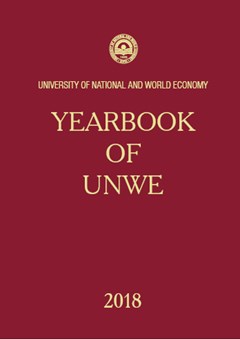Academic Training in Social Audit - Analysis of Needs, Conditions and Trends
Author: Miroslava Peicheva
Abstract
The present analysis is carried out for the purpose of implementing a scientific event dedicated to "Responsible Choice: Training, Research, Practices" [Round Table, 2017], organized on 29.11.2017 at UNWE. The methodology of the study includes three main stages: purpose, objectives, thesis and hypothesis of the study, collection and analysis of information, conclusions and recommendations. The purpose of this study is to analyze the needs for the development of academic training of social audit. The main tasks of the study are: to analyze the needs for the development of academic education in social audit; to analyze the current state of academic education in social audit; to analyzes the trends in academic education in social audit; to submit conclusions and recommendations. The methods for collecting information for the purposes of the survey are: document analysis, analysis of internet sources, analysis of scientific research related to social audit. Main conclusions and recommendations are linked with necessity of including all stakeholders in the process of creating syllabus; necessity of more transparency of the content of the syllabus.
At present, there is no study of academic education in the field of social audit. The results of the study could be used of lecturers in social audit (but not only), the administration of the universities to make decisions and others who have interests in the process of training of social audit.
JEL: I2, I3, M4, M5

